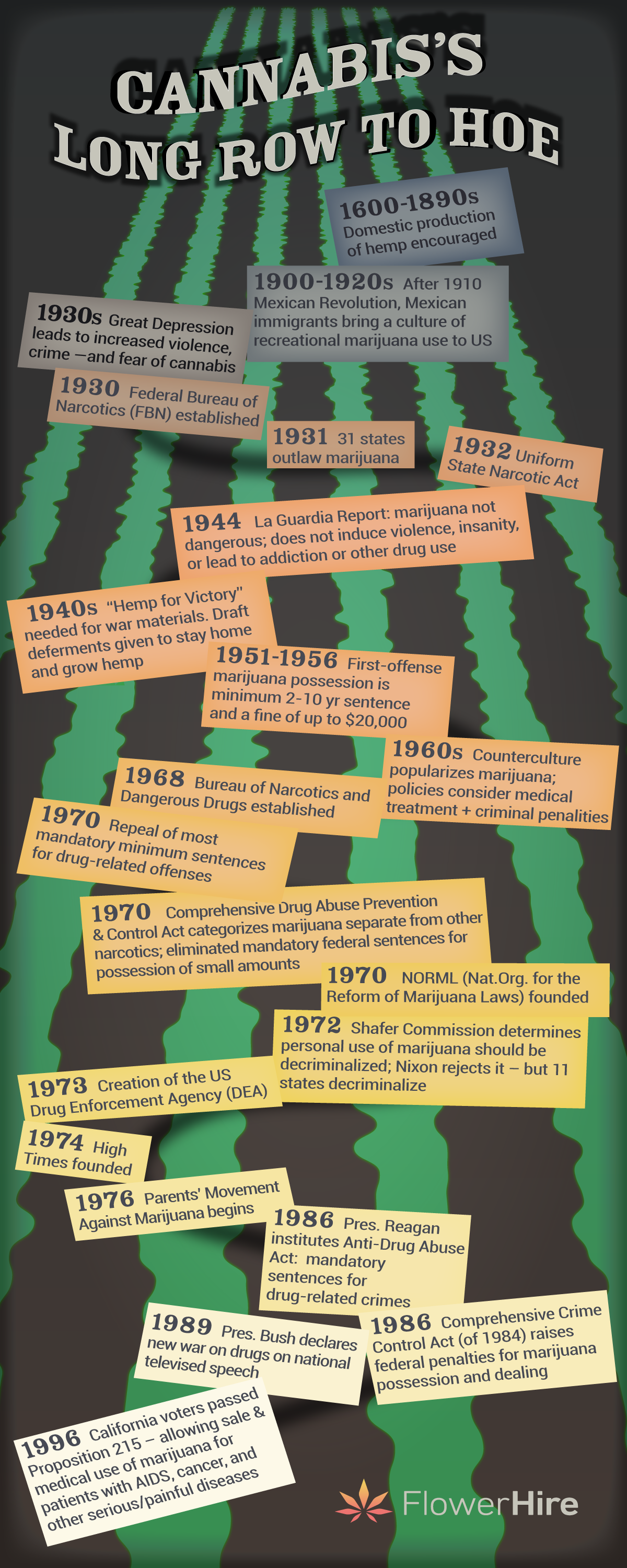Cannabis advocacy continues to be a long and hard journey. Especially since the plant is still stigmatized by too many people in all parts of the country…
As the cannabis community celebrates 420, we’re reminded of the change-makers who have led the cannabis reform movement and steered us to where we are today.
420 has been a long-standing cultural holiday in the cannabis community. As we celebrate the plant that continues to be federally illegal, we want to highlight how some people have the freedom to celebrate and appreciate the plant, while others do not.
Freedom is defined as the power or right to act, speak, or think as one wants without hindrance or restraint. So in the land of the free:
- Why do some people have the freedom to plant cannabis plants in homes and gardens, but others are imprisoned for it?
- Why do some people have the freedom to consume the plant medicinally, but others are put in jail for it?
- Why are some people allowed to legally sell cannabis, but others are currently serving sentences for it?
- Why do some groups of people fear dire consequences for how they act, speak, and think, while others act freely without fear?
The War on Drugs has stripped groups of people from their rights as Americans while taking away access to the plant.
At the core of cannabis reform and advocacy has always been “free the plant, free the people.” And as the public increasingly perceives the cannabis industry as legitimate, and the plant continues to become more normalized, the damage done by the War on Drugs is finally beginning to unravel.
In 1969, Americans’ support for legalization was 12 percent. Today, 60 percent of Americans support cannabis for both medical and recreational use. Thirty percent support cannabis for medical use only. And only eight percent of Americans think cannabis should be illegal.
While this is great progress, this is only the beginning…
The Federal Bureau of Investigation’s Uniform Crime Report states that 545,602 people were arrested for a cannabis-related crime in 2019. That’s more than the number of people arrested – 495,871 – for all violent crimes put together. And between 2001 and 2010, there were 8.2 million cannabis arrests and 88 percent of those were for simply possessing the plant.
Further, while cannabis is consumed at roughly the same rate across different races… Black and Brown people are more likely to be arrested for cannabis possession than white people. And depending on the location, Black and Brown people are anywhere from four to eight times more likely to be arrested for cannabis. In the 4th quarter of 2021 – in New York City – 94% of cannabis arrests were people of color.
“When [police] are in upper and middle-class communities, they tend to look the other way and go about other types of work. But for some reason when they’re in the minority community, marijuana becomes a tool to keep people in their place.” – Keith Stroup, public interest attorney and founder of NORML
As the cannabis legalization movement spreads, we must free the plant and free the people. We must end cannabis prohibition.
The history of cannabis in the land of the free
The cannabis plant dates back around 28 million years ago to ancient Asian cultures. Over time, its benefits were shared and it was used all over the world. It wasn’t until recent history – the early 1900s – that cannabis prohibition began.
Before cannabis prohibition in the United States, the domestic production of hemp was encouraged. Cannabis was even allowed in over-the-counter medications – in 1906, the Pure Food and Drug Act required cannabis to be labeled on medications (see timeline).
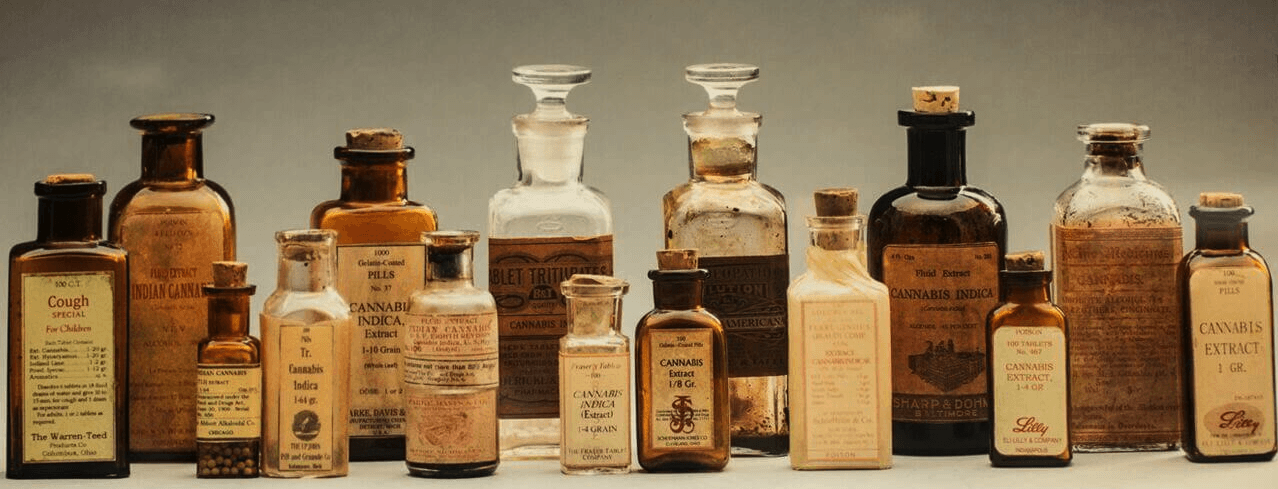
But after the Mexican Revolution, Americans were introduced to the recreational side of cannabis by Mexican immigrants. And the fear and prejudice of Mexican immigrants became associated with cannabis. Around 1910, U.S. officials co-opted the term “marijuana” to sound scarier and more foreign to U.S. citizens – U.S. citizens were familiar with “cannabis” as a medicine. The change in the term used greatly contributed to the criminalization of the plant and the people. Mass unemployment during The Great Depression further amplified the resentment of the Mexican migrant workers.
Keith Stroup, public interest attorney and founder of NORML, emphasizes that cannabis was popular in the African American jazz community and among Mexican migrant workers. And neither of these groups had political power during this time, nor were they respected in American culture. Cannabis prohibition became a way to criminalize those groups of people. Those people who were perceived to challenge the status quo of societal power. When it was realized that cannabis could be used as a tool to suppress these groups of people, cannabis prohibition began.
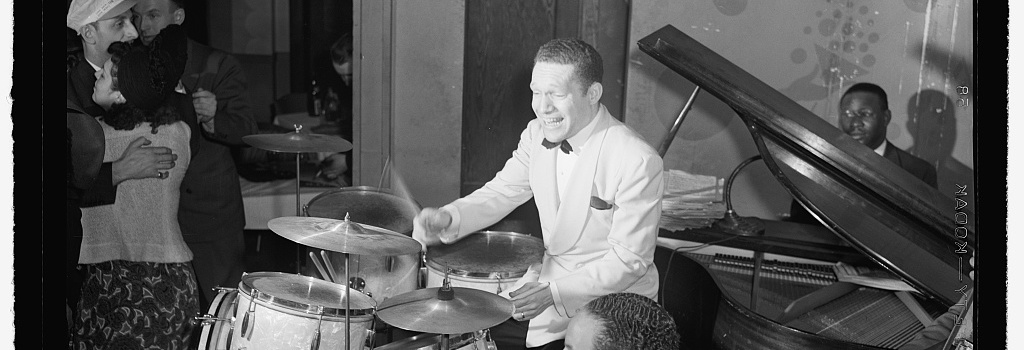
From that point on, cannabis consumers were subject to propaganda campaigns that presented users as crazed criminals, or at best, individuals having some sort of moral failure. This led to a series of policy changes that further criminalized cannabis smokers.
There’s no doubt that cannabis prohibition was racist. And these elements of racism are still prevalent today… similar to segments of a society obsessed with moments of violence in the otherwise overwhelmingly peaceful Black Lives Matter protests in the largest mass movement in US history. We’re still overcoming racism, and we still have a long way to go.
Finally, in the 1970s, most of the mandatory minimum sentencing laws were repealed. NORML was founded by Keith Stroup– with a $5,000 grant from the Playboy Foundation. And people began to acknowledge that the private use of cannabis was acceptable.
Listen to Keith Stroup, the founder of NORML speak on the Kannaboom Podcast


From cannabis prohibition to cannabis reform
Keith Stroup graduated from Georgetown Law School in 1965. Shortly after that, he worked with Ralph Nader and he did everything he could to stay out of the Vietnam War. Working with Nader on the National Commission on Product Safety kept Stroup out of war and gave him foundational skills that transferred to his work on ending cannabis prohibition. Shortly after working on the National Commission on Product Safety, NORML was founded.
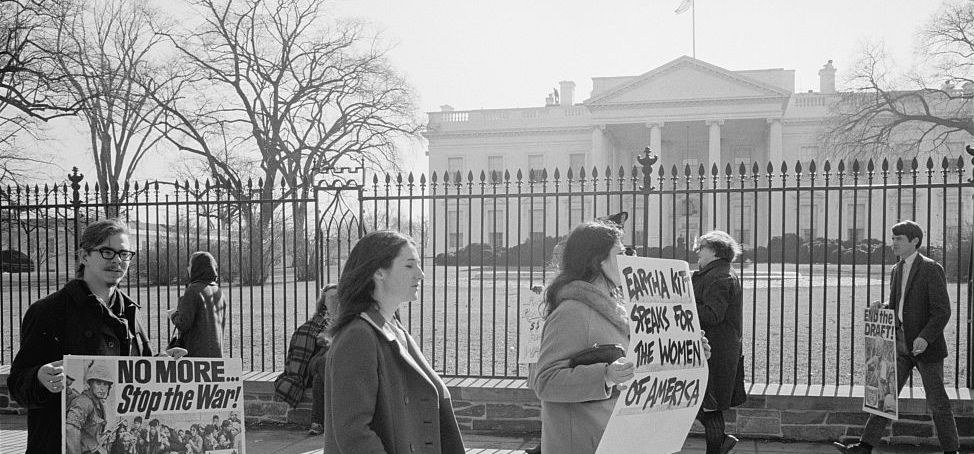
At first, NORML wasn’t representing the cannabis industry. NORML was representing the cannabis smoker. As long as cannabis smokers were being put in jail, they had to focus on that. NORML’s initial push for cannabis decriminalization got 11 states to adopt some version of cannabis decriminalization:
1973 – Oregon
1975 – Alaska
1975 – Colorado
1976 -Ohio
1976 – California
1976 – Maine
1976 – Minnesota
1977 – Mississippi
1977 – New York
1977 – North Carolina
1977 – Nebraska
Keith Stroup says on the Kannaboom Podcast that they knew ending cannabis prohibition would be a “serious project that would take some time. We thought maybe a decade or so.”
But then Ronald and Nancy Reagan (who shrewdly enlisted support from Girl Scouts of the United States of America, Kiwanis Club International, and the National Federation of Parents for a Drug-Free Youth) led a Madison Avenue-fueled campaign called Just Say No, which set back NORML’s efforts. Many children from the ‘80s – including FlowerHire’s Client Services Manager, Aisha Alves – have the memory of sitting on the cafeteria floor where they listened to assemblies condemning drugs. The generation was taught to fear who they would become as a result of coming into contact with “drugs”. And since cannabis was the “drug” kids were most likely to come into contact with, cannabis was considered the worst.
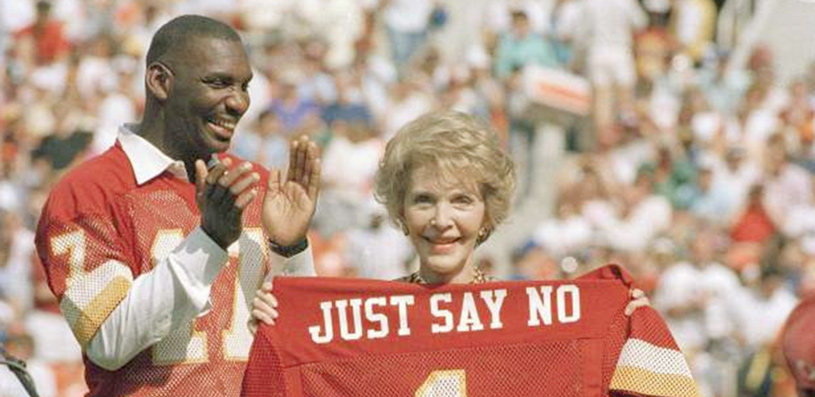
Around the same time, the medical marijuana movement was gaining momentum. LGBTQ+ communities and other legacy advocates were fighting for access to medical cannabis for people living with diseases such as HIV/AIDS and cancer. Without the sacrifices and leadership of the LGBTQ+ community, we would not be here doing what we’re doing.
Read about the impact LGBTQ+ communities have had on cannabis legalization
Today, advocacy groups are still fighting to free the plant and free the people through cannabis reform
Huge amounts of efforts are still needed on cannabis reform and ending cannabis prohibition to get the plant to the people. What Stroup thought would take a decade, is still being worked on 50 years later… Grassroots advocacy groups are still fighting the same fight. Advocacy groups like:
- National Organization for Reform of Marijuana Laws (NORML)
- Marijuana Policy Project (MPP)
- Last Prisoner Project (LPP)
- Minority Cannabis Business Association (MCBA)
- Root and Rebound
Today, cannabis is legal in 19 U.S. states, the District of Columbia, Northern Mariana Islands, and Guam, for adult use. For medical use, it’s legal in 36 U.S. states. And cannabis was deemed an essential industry during the COVID-19 pandemic.
Cannabis advocacy has both evolved and made leaps of progress. Today, cannabis advocacy has shifted from focusing primarily on the rights of the individual smoker, to creating social change on a much larger scale. Today, cannabis reform includes making the plant accessible to all, and also must include:
- Releasing prisoners who have non-violent cannabis charges
- Expunging cannabis crimes from their records
- Making training available for a successful reentry
- Implementing just laws and regulations
- Supporting legacy operators in entering the legal industry.
Organizations that are fighting for federal cannabis reform
Organizations fighting to free the plant and free the people are instrumental in cannabis reform. These organizations go as far as writing the bills and proposing them to congress. Without these change-makers, the cannabis legalization movement would be far from where it is today.
National Organization for Reform of Marijuana Laws (NORML)

NORML has been giving a voice to people who oppose cannabis prohibition since the 1970s. The oldest and largest cannabis advocacy group in the United States, NORML is the original All American grassroots cannabis advocacy group.
During the 1970s, NORML led the successful decriminalization efforts in 11 states and lowered cannabis penalties across the United States. Today, NORML leads efforts in forming both state and federal cannabis laws. Their work is seen in both voter initiatives and through elected legislatures.
NORML’s founder Keith Stroup reminds Americans that most change is occurring at the state and local level. So if you want to make an impact, get in touch with your state and local NORML groups because that’s where the action is. Call 202-483-5500 to find out how you can help.
Marijuana Policy Project (MPP)

The Marijuana Policy Project (MPP) was founded in 1995. Some of their goals are to:
- Allow patients to use medical marijuana with their doctors’ guidance
- Put a sensible system of regulation in place
- Leverage state progress to drive sensible federal reform policies
- Implement marijuana policies that promote inclusion, equity, and justice.
- Advocate for marijuana policy reform
- Find media coverage on cannabis reform
- Sponsor educational initiatives, events, and campaigns.
So far, the Marijuana Policy Project has:
- Passed 13 medical cannabis laws in the past 15 years
- Ran winning campaigns in eight of the 11 legalization states.
The Marijuana Policy Project is 100% reliant on donations.
Last Prisoner’s Project (LPP)

The Last Prisoner Project believes that no one should continue suffering from cannabis prohibition and the War on Drugs… both of which continue to disproportionately impact communities of color. Their team of attorneys, criminal justice reformers, advocates, and justice-impacted individuals, are working to redress the past through awareness, advocacy, and intervention.
The Last Prisoner Project has either directly implemented services or engaged in policy reform in that states of:
- California
- Colorado
- Connecticut
- Hawaii
- Illinois
- Maine
- Maryland
- Massachusetts
- New Jersey
- New York
- Ohio
- Texas
- Virginia
The Last Prisoner Project has distributed over $180,000 in grant funding.
Minority Cannabis Business Association (MCBA)

The Minority Cannabis Business Association was founded in late 2015. MCBA is the first 501(c)(6) not-for-profit business league created to serve the specific needs of minority cannabis entrepreneurs, workers, and patients/consumers.
Their focus is on policy, empowerment, and connection.
Minority Cannabis Business Association fights for equity by:
- Developing local, state, and federal cannabis reform policies
- Fighting for the release of prisoners
- Advocating for the expungement of cannabis crimes
- Training for successful reentry into society
- Offering scholarship opportunities for people interested in a career in the legal cannabis industry
In 2020, LPP distributed over $180,000 in grant funding.
Root and Rebound

Root and Rebound is a group of lawyers, advocates, and activists committed to creating a more restorative and just society. They help reunify families, find housing, access employment, and affirm their rights to fair treatment and dignity under the law.
Root and Rebound has:
- Provided direct legal support to over 5,500 system-impact people
- Provided legal support on over 6,500 legal matters
- Supported over 3,000 people in being released from federal prison since they created the First Step to Second Chances Guide
- Had 95% of their Reentry Legal Hotline callers said the hotline helped resolve issues related to their justice involvement
Do you know any other organizations that are doing advocacy work in the cannabis industry? If so, reach out to let us know who they are!
Organizations supporting cannabis companies with restorative justice
Cannabis Doing Good

Cannabis Doing Good (CDG) supports organizations on their journey in contributing to a racially-just, planet-loving, people-centered cannabis sector.
CDG was listed as one of the Top 100 Cannabis Companies in the United states for their work in social responsibility. Whether a company is fostering an anti-racism/DEI Committee, infusing racial justice into your overall CSR program, meeting policy requirements, or working to diversify staff, CDG’s Racial Equity Products and Services help identify which areas of your business present opportunities for improvement. Some services include:
- Cannabis social responsibility strategy development
- Business and community consulting
- Anti-racism training and workshops for leadership and staff
- Equity and licensing consultations for strategy and support
Become a member or get your company started with the anti-racism course.
40 Tons cannabis hiring fairs

40 Tons is on a mission to close the gap in restorative justice and diversity and inclusivity within the cannabis industry. They connect people harmed by the War on Drugs directly with the top cannabis employers and educational institutions in the industry. Their virtual and in-person career fairs speed up the job search process.
How can I support cannabis reform and ending cannabis prohibition?
If you’d like to support cannabis reform and help end cannabis prohibition, you can:
- Support advocacy groups by donating
- Get involved with your local advocacy groups
- Have conversations with your friends, family, neighbors, and colleagues
- Reach out to your state and local government
Cannabis advocacy continues to be a long and hard journey. Especially since the plant is still stigmatized by too many people in all parts of the country… People need reliable information to see the many ways society is already benefiting from cannabis… As you’re beginning your advocacy journey, it’s common to fear the repercussions of:
- Judgment from friends and family
- Being seen as an unfit parent or neighbor
- Testing positive for THC on an employment drug test
- Being accused of driving under the influence
- Losing your housing
- Being arrested, fined, and/or possibly serving time in prison
These are very real and valid fears. And some groups of people live with these fears more than others.
As an industry, we must continue advocating and supporting advocacy groups so that people can be free from these fears.
Join us in committing to build an antiracist cannabis industry in 2022 and start developing a plan of action. Here is a list of cannabis industry leaders who are ready to help you build and act on your commitment to justice.



